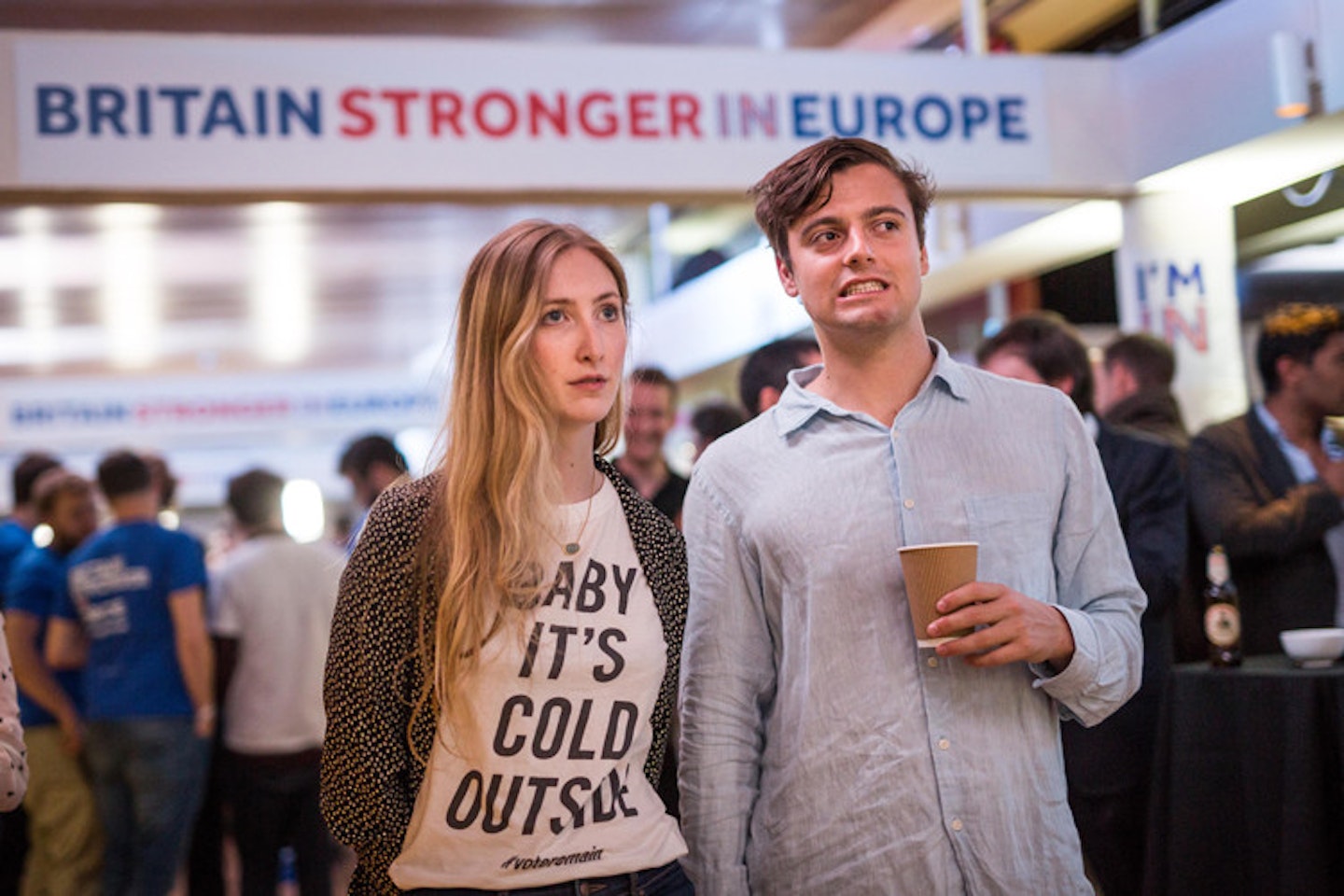It’s now been over a week since it happened. Since then we have been told that the world, or at least our country, is ‘falling apart’. Markets yoyo, moving like runaway train rollercoasters, the people in charge seem to change every few hours and the news is awash with headlines which make it quite clear that nobody really knows what the future holds. I am, of course, talking about Brexit.
Friends and acquaintances have been coming together to discuss the end of the world as we know it. Last week, waiting to board a plane in Germany a stranger approached me, presumably having spotted by burgundy British passport, and asked me whether I was ‘worried about Brexit’. For half an hour we confided in one another that the uncertainty was unnerving us.
Boris Johnson has casually dismissed the reaction to Brexit as nothing more than ‘hysteria’, comparing people’s reactions to the prospect of Britain leaving the EU to the national mourning which took place when Princess Diana died.
Surely it’s actually pretty rational to be feeling anxious about something so important as, you know, not knowing who’s in charge of your country or how things are going to change because of a historic decision to part ways with a gargantuan institution such as the European Union? Perhaps if you're well-heeled and financially secure like Mr Johnson you're unmoved by such trifling concerns. For the rest of us, whichever way we voted, it's unsurprising that there is such widespread concern. If you think about the referendum was really a vote about what sort of country we want to be, and a pretty hyperbolic one at that. Its outcome will determine our national identity in years to come and how we relate to the rest of the world. It’s like Britain is a teenager again, covered in itchy zits, preparing to fly the nest and trying to work out who the hell we are.
Indeed, many are reporting that we face a national epidemic of post-referendum anxiety, that Britain as a nation is suffering from a severe Brexistential Crisis. One study, conducted by Bcalm, suggests that people are feeling, on balance, 45% more anxious in the wake of the vote which took place on June 23rd.
Last week I took to deleting Twitter, banning myself reading the news and asked my nearest and dearest if they wouldn’t mind ‘not mentioning the B-word for a bit’ because I found myself vibrating at a very high frequency. It's OK, apparently even financial markets are ‘anxious’.
How is Brexit making us anxious? Why is Brexistential angst sweeping the nation? Dr Gillian Butler, a consultant clinical psychologist, confirms this. ‘It makes complete sense that people would be feeling anxious because uncertainty is one of the key causes of anxiety. It’s worrying about what might happen and how you’ll cope.’ Both our ‘financial markets and political system are unstable’ she says, such instability is a ‘prime cause of anxiety’.

We are, effectively, in a state of national limbo. We’ve had the vote but now we don’t have a proper Prime Minister and we don’t really know what’s happeningbecause everyone who was so passionate about Brexit during the campaign seems to have resigned or stepped aside. If you’re feeling a bit Brexistential right now then ignore Boris, you’re not hysterical at all. It’s completely legitimate to be feeling a bit discombobulated.
She notes that it’s difficult to allay your fears or calm nerves because so much is still unknown, ‘if you’re asking yourself ‘what might happen after Brexit’, then the answer is that we don’t know.’ She points out that one of the coping mechanisms for those who suffer from anxiety is to think about how you will handle a particular situation when it does arise. ‘Sometimes you can get rid of anxiety by telling yourself that you’re confident and you’ve got support’ but, she says, when it comes to Brexit this is a ‘completely new’ set of circumstances. ‘If you don’t know what it is that’s going to happen then you can’t ask yourself how you’ve coped in the past which means you might feel anxious and worried.’
As to whether or not we can take comfort in the fact that we’re ‘all in it together’ Dr Butler says ‘to know that everybody is concerned can be reassuring until the thing that you’re concerned about is so major that you’re all facing something that is cataclysmic.’ However, Dr Butler is quick to point out that we aren’t ‘quite at that point yet.’
‘Sharing a concern is helpful but not if it turns into winding each other up by asking “what is this?”, “what is that?” every time something else happens, then it becomes quite unhelpful’, she says.
When everyone is somewhat anxious and a bit on edge ‘one thing to do’ Dr Butler says ‘is make sure you do things that are familiar to you– do the things you normally do which are part of your routine, look for the support of others and try to remember to laugh. Seek out satirical programmes about the situation – that does take some of the horror away.’
If both the Leave and Remain campaigns were to be believed the world would have ended by now. We can take solace in the fact that it hasn’t. Things are confused and a little chaotic, if not shambolic when it comes to our politicians. It’s also true that an uglier side to our society has surfaced. However, rather than allowing this uncertainty to cause further division, worry and stress we should take it as a cue to take a step back, regroup and come together so we can work together on what sort of country we want to be.
You might also be interested in:
Here's What Happened When Lily Allen Went To A Garden Party With Nigrl Farage and Rupert Murdoch
Follow Vicky on Twitter @Victoria_Spratt
This article originally appeared on The Debrief.
